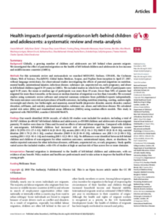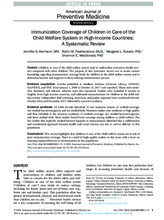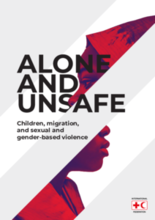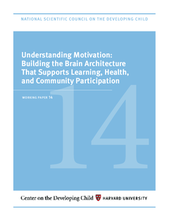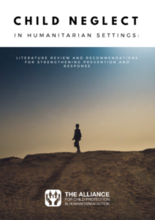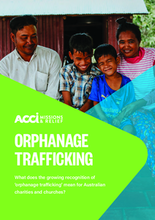Displaying 551 - 560 of 1343
This systematic review investigated the effect of parental migration on the health of left behind-children and adolescents in low-income and middle-income countries (LMICs).
This study investigated the effect of parental migration on the health of left behind-children and adolescents in low-income and middle-income countries (LMICs).
The purpose of this systematic review was to assess current knowledge regarding immunization coverage levels for children in the child welfare system and to determine barriers and supports to them utilizing immunization services.
This study seeks to improve understanding of the risks and types of sexual and gender-based violence faced by children who migrate on their own, as well as the unfortunate and widespread gaps in protection and assistance for these children.
This paper explores the complex set of intertwined social and biological factors influences people’s motivation to participate actively and productively in schools, jobs, and communities— and to persevere in the face of setbacks.
In this video, Dr. Kristen Cheney discusses how her work led her to study the growth of the Orphan Industrial Complex and its adverse effects on children, families, communities, and child protection systems.
The purpose of this literature review from the Alliance for Child Protection in Humanitarian Action is to synthesise evidence on the prevalence, patterns and impacts of child neglect in humanitarian contexts.
This 2019 Global Education Monitoring Report continues its assessment of progress towards Sustainable Development Goal 4 (SDG 4) on education and its ten targets, as well as other related education targets in the SDG agenda. Its main focus is on the theme of migration and displacement.
This briefing note has been written to give Australian charities and churches currently engaging with overseas residential care institutions an overview of the issue of orphanage trafficking and an understanding of how to ensure any overseas funding and volunteering supports the best interests of children in line with national and international legal frameworks.
This study uses data from 215,885 children in 62 countries from the fourth and fifth rounds of UNICEF’s Multiple Indicator Cluster Surveys (MICS) to examine the relationship between spanking and child well-being.


